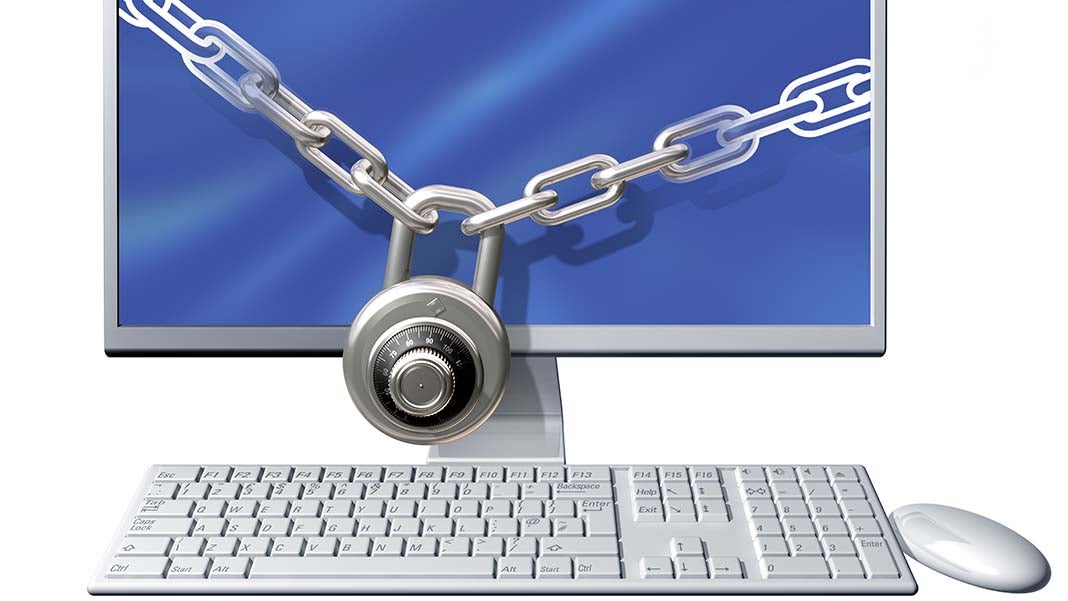
On a daily basis, I get walk-ins at my computer repair company who ask very similar questions: How can I protect my identity and sensitive information when surfing the web?
Quite a few people aren’t aware of the repercussions of downloading obscure files. Furthermore, forgetting to update their anti-virus may leave them open to attack. Simple steps like creating many passwords and avoiding “free” offers are often omitted.
There are other common tactics out there. You may receive phone calls or emails which request access to your computer. Or worse, widespread computer infections. Let’s look at some ways you can stay protected:
1. Take the Necessary Steps to Secure Your Device
This is the first thing you need to do to avoid hacks. Never download anything that you don’t trust, or that comes from questionable sources. Don’t hand out your password as if it were a sale flyer and never, ever, leave your devices unattended.
More tech-savvy computer users must ensure that their devices have a decent firewall. Also, always make sure to install software updates. A quick Google search will provide you with tons of other tips and tricks to staying secure.
2. Protect Yourself
As stated above, software updates are essential to avoid information theft. Software updates are not released only to keep your computer or mobile running well.
Hackers are designing new ways to gain access to the devices of others every day. Software updates are a way to battle those new methods. Stay up to date and avoid any issues.
3. Nothing is Truly “Free” on the Internet
The typical “free” viruses are one of those too-good-to-be-true scenarios. By downloading files which claim that you won a prize, you’re opening a virtual door for hackers. They easily walk in and start stealing all the information they desire.
In fact, you are inviting them in by downloading as much as one game or one song from the internet. That can lead to a whole new set of problems, and a visit to a pc repair specialist.
4. Have More Than One Password
Getting extra authentication for your computer or on websites is very important. More security to your account means more difficulty for hackers to access it.
Keeping infiltrators out of your accounts will protect your sensitive information. It will also keep you away from credit card and identity theft. Avoid password corruption by having different passwords for each account. This is much more secure than variations of the same password.
5. Avoid the Phone Call Scam
Beware of criminal activity. The phone call scam is an old tactic, but still widely used. Criminals will call senior citizens or other people who don’t know much about technology. Once you answer, they will start telling you something about how your computer has was hacked. They will say that by allowing them remote access, the problem will be resolved. Hang up the phone immediately.
If you allow them to access your computer from their location, they then have absolute control of it. They will begin stealing every piece of information they can get their hands on. Credit card numbers and other financial info will become theirs. Once you find out what happened, it’s usually too late.
Never buy services over the phone or from someone you don’t trust. Do your due diligence and investigate how to find a reliable computer repair service.
6. Skip Questionable Links
Do your best to track links which are included in emails or on websites which you may visit. If you are provided a link, that doesn’t mean you are obliged to click on it. URLs can be dangerous because they might take you straight to a virus.
It is crucial to make sure you analyze the origin of the link and whether it is safe to open. Be wary of links that come from financial institutions that handle bank accounts. Many times, their names are used in malicious link schemes.
7. Properly Erase Your Device Before Selling It
So you’ve decided to sell your computer or tablet or smartphone for whatever reason. You quickly delete everything before taking it over to the shop and getting rid of it. Slow down, you may be missing some steps.
If you don’t erase your device correctly, someone might restore what you tried to delete. Even after you delete files, there is a possibility that a hacker might then regain control of them.
Do a full, factory reset to turn your device into a blank slate without worry. Here are some steps on performing a factory reset on Macs and on Windows devices.
There are my seven tips to staying protected in today’s day and age. There is always the threat of attack on your identity and information. Protect yourself, use different passwords, and be careful of what you download or click on. Make sure you update software consistently. Above all, erase your files properly before selling your device.
Are there any other tips you have found useful to staying protected? Please let me know in the comments!
3557 Views












